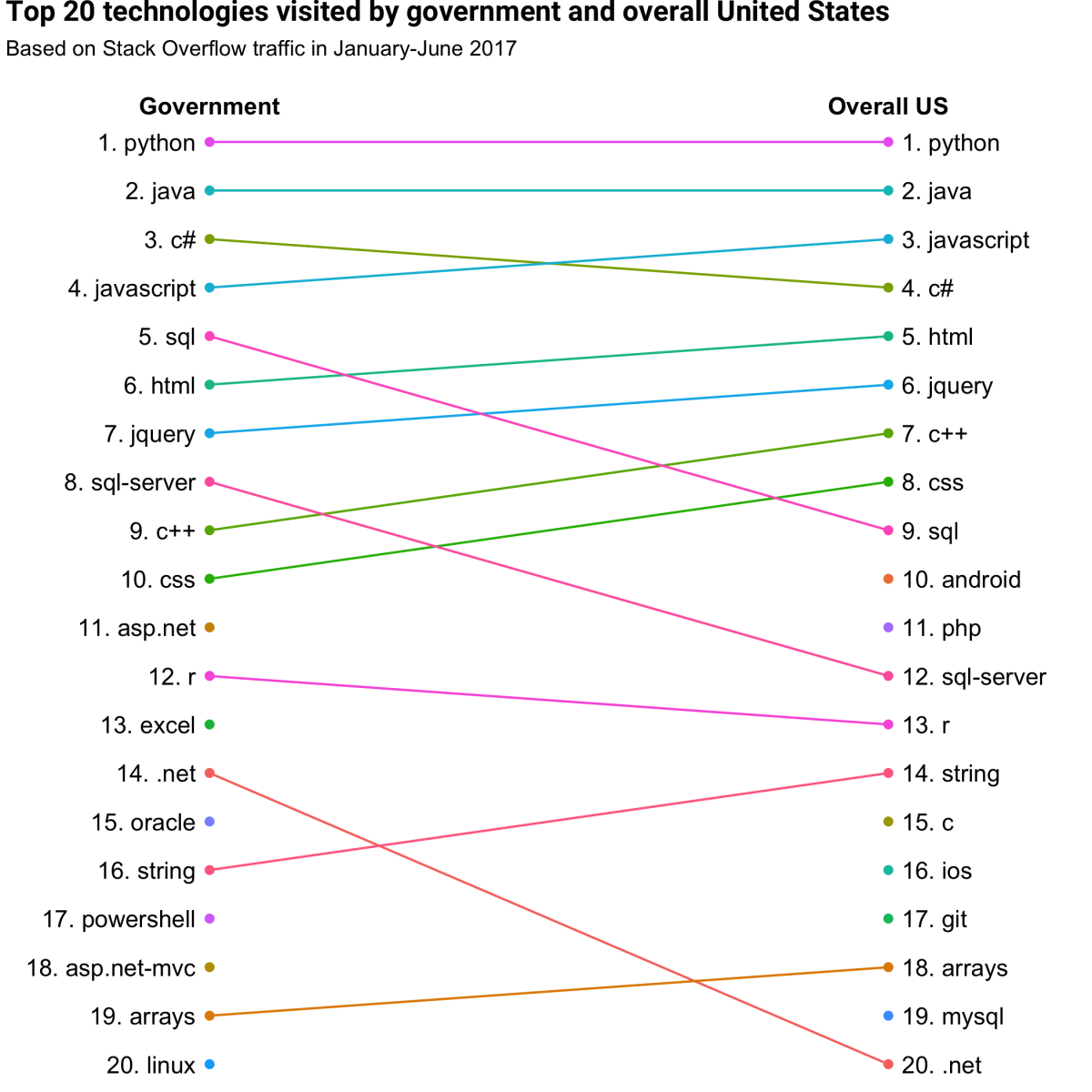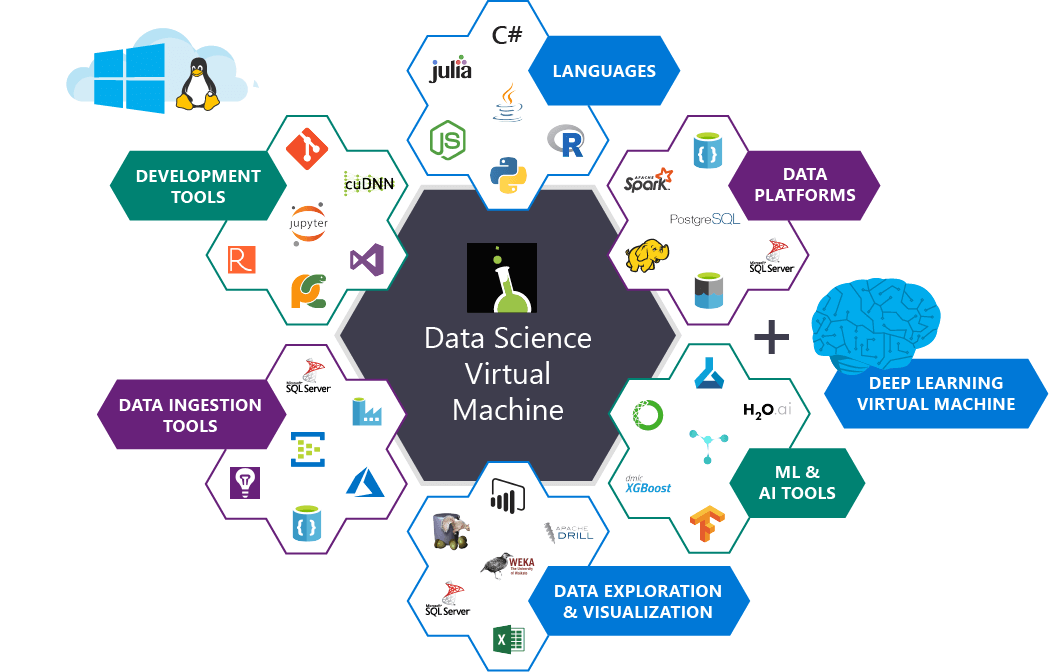Trends in Government Software Developers
A few months ago, StackOverflow published their findings on Trends in Government Software Developers. StackOverflow is the #1 source for software developers to find answers on the Internet and has been the leader in this space for years. Because StackOverflow is one of the most highly trafficked sites on the Internet, they have at their disposable vast amounts of data on developers throughout the world.
An analysis of StackOverflow’s trends in government software developers shows that Microsoft Azure Government is the perfect place for government developers to be. Azure Government provides all the technologies currently important to government developers and more.
Top Tech Used by Government Developers
First, it’s interesting to note that Python is currently the #1 language both for government developers as well as US overall (i.e., including non-government developers). Python is well supported in Azure Government. Web apps platform-as-a-service (PaaS), infrastructure-as-a-service (IaaS) workloads, Machine Learning with HDInsight (including PySpark and Jupyter notebooks), Artificial Intelligence with the Cognitive Toolkit – these are all technologies where a developer can leverage Python.
Looking at the other top technologies for government developers, we have (in order): Java, C#, JavaScript, SQL, HTML, jQuery, SQL Server, C++, and CSS. These are all technologies fully supported on Azure Government. Most of these are web technologies leveraged to build web apps – Azure Web Apps on Azure Government provides a fully supported Department of Defense Impact Level 4 and Level 5 environment for PaaS web apps.

In addition to leveraging Azure PaaS services directly, government developers can deploy container (e.g., Docker, Kubernetes) workloads on Azure Government on IaaS today. Managed container services with Azure Container Service (AKS) will be coming soon to Azure Government.
Another notable finding on the top technologies list is that .NET, C#, SQL, and SQL Server are ranked higher for government developers compared to US overall. These are well-established Microsoft technologies and, while Azure prides itself on being a cloud for all platforms (i.e., including non-Microsoft), we certainly feel we are the best cloud for running Microsoft technologies.
Looking at the analysis on database technologies, we see that SQL Server and Oracle are both more common in the government space. Microsoft has been the leader three years in a row for Gartner’s Magic Quadrant for Operational Databases. In Azure Government, SQL Database is the best managed cloud offering available across any cloud, and we provide the highest quality tools to easily enable you to migrate your current on-premises workloads to Azure Government.

Fastest Growing Technologies in Government
Shifting to a future focus on the fastest growing technologies, the StackOverflow trends reveal a significant increase in data science and analysis technologies in the government space – particularly Python and R. Once again, Azure Government enables you to run Machine Learning workloads with Python on HDInsight, as well as either Python or R within ML Server running on Azure. This is in addition to using the Cognitive Toolkit with Python or C++ to build powerful custom AI/ML models.
One of the best ways to get started with data science technology on Azure Government is to leverage the Data Science Virtual Machines (DSVM). The DSVM is pre-configured with a plethora of AI/ML tools to get you up and running quickly without the hassle of time-consuming software installation.

Keeping up on the latest trends for government software developers is extremely important to ensure that your workloads are leveraging the best technologies available. Microsoft Azure Government provides the most comprehensive cloud platform to enable your government mission.
For the latest updates and information about Azure Government, subscribe to our blog.

 Light
Light Dark
Dark
0 comments